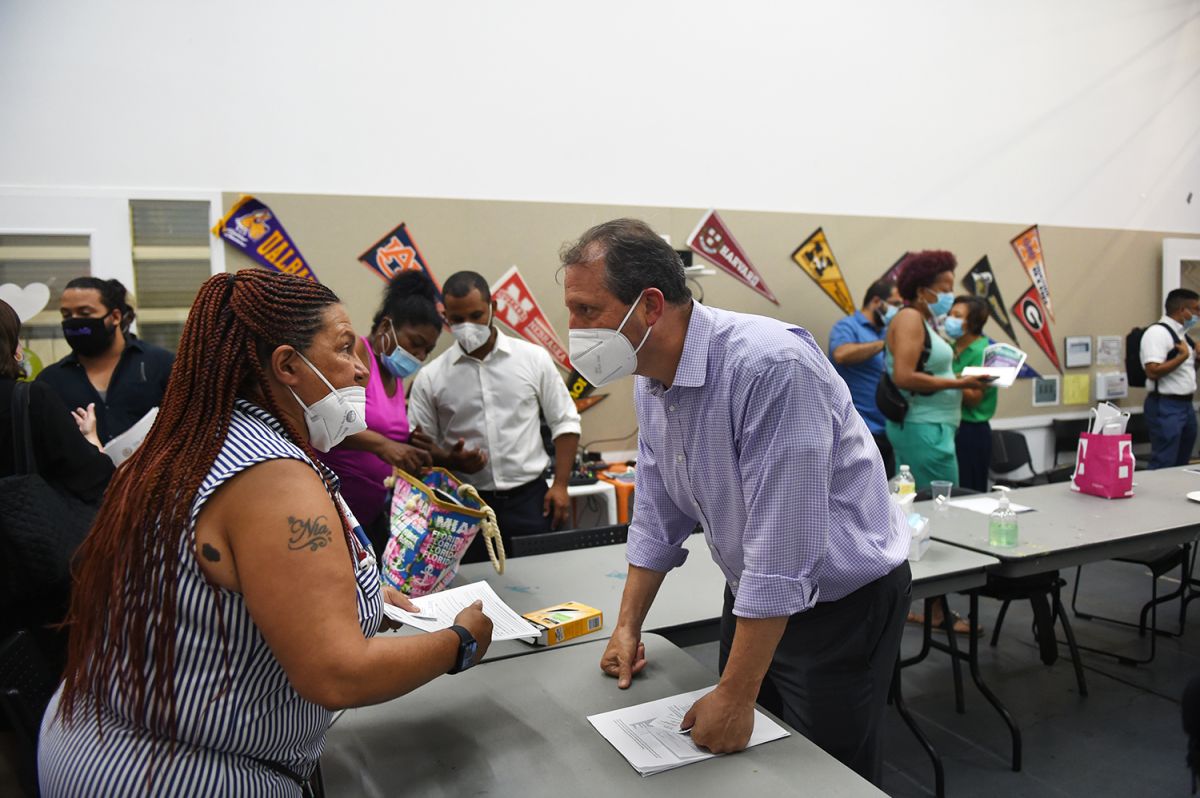The traditional and unflattering reports issued by the Comptroller of the City of New York on the Public Housing Authority (NYCHA), will be very different starting this year. Now, the residents themselves will have the opportunity to be the protagonists of the audits and supervision plans, through a survey that is now available online in several languages.
Comptroller Brad Lander, who initiated his functions this year, he opened a virtual consultation to residents of all public housing complexes, seeking comments and suggestions for audits of the operations and management of this agency.
The survey is part of a broader approach, which will include meetings with residents, to help focus audits by the comptroller’s office on failures and concerns reported by those affected.
According to local laws, the comptroller must audit all City agencies and entities once every four years.
In this case, the public housing units have been placed on a “special watch list”, facing increased scrutiny due to their ongoing financial and administrative problems.
years and 18 audits
In the last decade, NYCHA has been audited by the Comptroller regarding its financial and operating practices over 18 times and proposed more than 150 recommendations for improve their operations.
The difference in the new approach announced by Lander is that the focus of these reviews will be broadened, incorporating more data that comes from the experiences of those affected.
“NYCHA residents are the experts on what needs to be fixed in their homes, so they must be part of the solutions. Using our monitoring tools, in partnership with residents, resident-driven audits will aim to address their quality of life issues,” said Comptroller Lander.
The new methodology will seek the input and participation of residents as the comptroller’s office choose what to audit or investigate, to ensure that in the future real progress is made in solving the service dramas in the largest public housing system in the country.
“The people it is tired of years of auditing and especially not seeing changes. Now we are including them as an active part of the changes, which they have demanded for years. And this online consultation is a very interesting way to do that.” Lander explained.

NYCHA in the public eye
On NYCHA complexes, in addition to the Comptroller, the supervision of a federal public housing monitor and constant reports from the Ombudsman’s Office weigh the agency as the ” worst landlord” in the Big Apple.
According to the crossing of several reports condensed by the organization Citizen Budget Commission (CBC), almost the 80% of NYCHA’s housing units are dilapidated, and what’s worse is that if they don’t make drastic changes in the next years, they could reach the risk of being affected beyond the point where they are unprofitable and impossible to repair.
NYCHA Spokesperson told El Diario that despite the financial challenges caused by the pandemic, many transparency tools have been improved in recent months to track repairs and failures.
“We have metrics and monitoring systems like never before before. There are changes throughout the system. Very good news will come, after years of financing problems”, the source limited.
Don’t stay silent: Participate!
- The survey asks residents to rate how good or bad their housing unit and residential complex are, based on services in several categories.
- Tenants are also encouraged to submit ideas for specific audits of NYCHA’s management and operations.
- If you are a NYCHA resident you can participate in the virtual survey available at: https://comptroller.nyc.gov/newsroom/surveys/nycha/
The last three audits:
- Year 2021: The evaluation of more than 400 community centers including senior centers and child care centers, located in NYCHA facilities, yielded according to the comptroller’s report at the time, Scott Stringer: A “very poor” and sometimes nonexistent system for tracking requested repairs in those service areas.
- Year 2020: The central theme of the audit focused on the failures of the heating systems. It was determined that the agency did not have actual inventories of the status of the boilers. A very slow response to failures reported by residents during the winter was detected.
- Year 2019: The report concluded that the Public Housing Authority had a “deficient” preventive maintenance program for the roofs, which also did not meet the warranty requirements of the manufacturers of those structures.
NYCHA at a Glance:
- 304 his 325 developments have 30 years or more.
- 300, Low and moderate income residents.
- 1 of each 14 New Yorkers depend on NYCHA housing, through its housing or Section 8.
- 18% of the tenants are of Hispanic origin, according to the balance of some organizations.
-
- 40 percent of NYCHA apartments, residents report three or more maintenance issues, compared to 8 percent of residents in private apartments, according to a recent survey e shown by the City.
